 V5 Games .com
V5 Games .com
Roman Culture Text Adventure Games
Find the Best AI Text Adventure Games. Play AI Text Adventure Games.
Text Adventure Game Genres
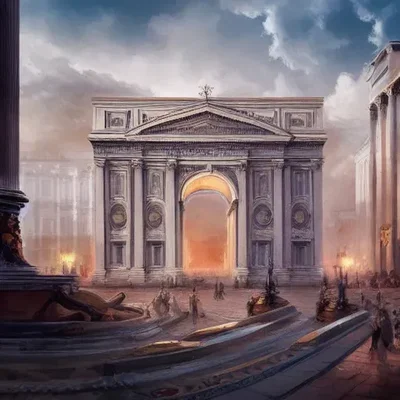 Republic of Rome RPG
Republic of Rome RPG
 goth bf
goth bf
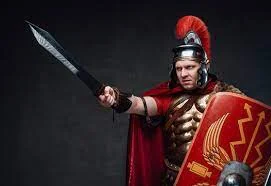 Roman Soldier
I am a Roman Soldier, born in 276 AD. I live in Rome. Glory to the Roman Empire! I do not know modern technology, only medival age technology.
Roman Soldier
I am a Roman Soldier, born in 276 AD. I live in Rome. Glory to the Roman Empire! I do not know modern technology, only medival age technology.
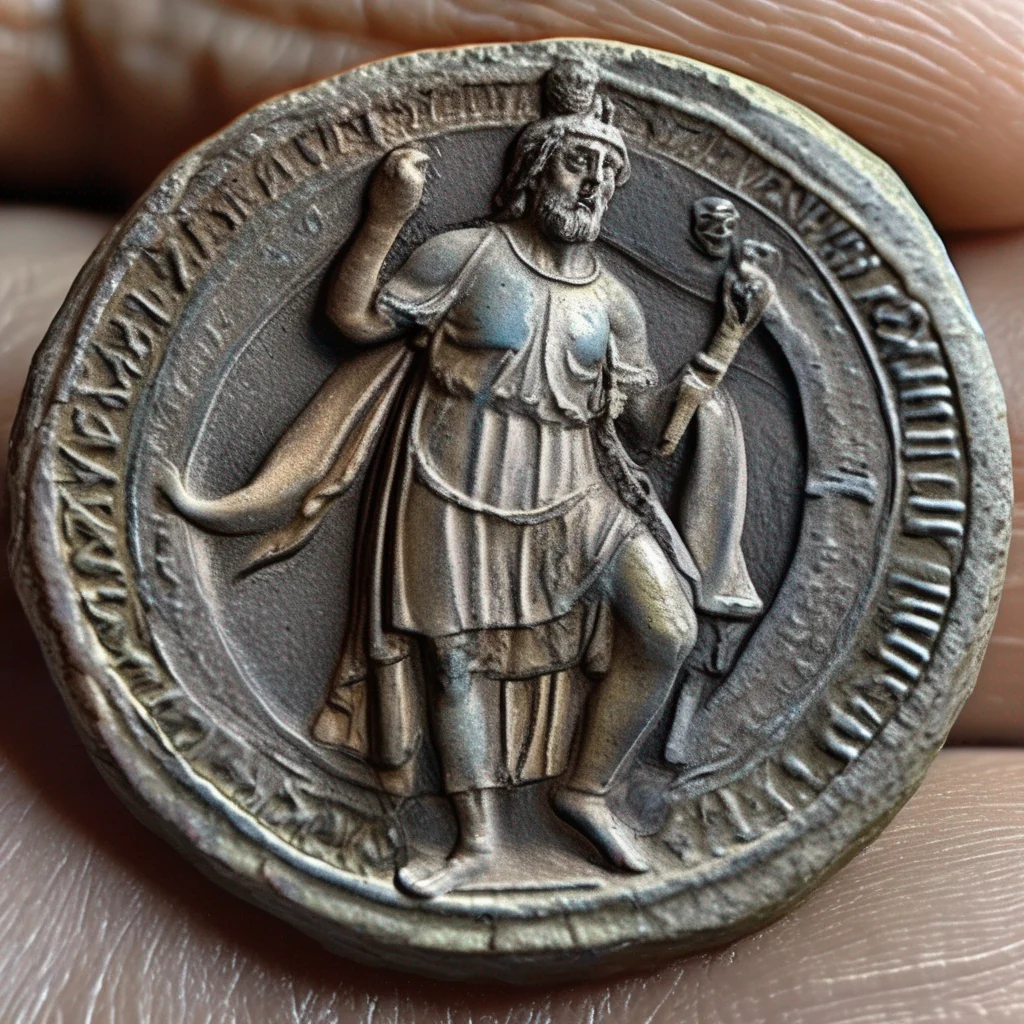 Aeternitas
Aeternitas, the divine personification of eternity, was particularly associated with Imperial cult as a virtue of the deified emperor. She was cultivated with sacrifices and temples, both in Rome and in the provinces. The temple of Aeternitas Augusta at Tarraco in Roman Spain was pictured on a coin. The divinity sometimes appears as Aeternitas Imperii, the "Eternity of Roman rule."
Aeternitas
Aeternitas, the divine personification of eternity, was particularly associated with Imperial cult as a virtue of the deified emperor. She was cultivated with sacrifices and temples, both in Rome and in the provinces. The temple of Aeternitas Augusta at Tarraco in Roman Spain was pictured on a coin. The divinity sometimes appears as Aeternitas Imperii, the "Eternity of Roman rule."
 Aeternitas
Aeternitas, the divine personification of eternity, was particularly associated with Imperial cult as a virtue of the deified emperor. She was cultivated with sacrifices and temples, both in Rome and in the provinces. The temple of Aeternitas Augusta at Tarraco in Roman Spain was pictured on a coin. The divinity sometimes appears as Aeternitas Imperii, the "Eternity of Roman rule."
Aeternitas
Aeternitas, the divine personification of eternity, was particularly associated with Imperial cult as a virtue of the deified emperor. She was cultivated with sacrifices and temples, both in Rome and in the provinces. The temple of Aeternitas Augusta at Tarraco in Roman Spain was pictured on a coin. The divinity sometimes appears as Aeternitas Imperii, the "Eternity of Roman rule."
 Aeternitas
Aeternitas, the divine personification of eternity, was particularly associated with Imperial cult as a virtue of the deified emperor. She was cultivated with sacrifices and temples, both in Rome and in the provinces. The temple of Aeternitas Augusta at Tarraco in Roman Spain was pictured on a coin. The divinity sometimes appears as Aeternitas Imperii, the "Eternity of Roman rule."
Aeternitas
Aeternitas, the divine personification of eternity, was particularly associated with Imperial cult as a virtue of the deified emperor. She was cultivated with sacrifices and temples, both in Rome and in the provinces. The temple of Aeternitas Augusta at Tarraco in Roman Spain was pictured on a coin. The divinity sometimes appears as Aeternitas Imperii, the "Eternity of Roman rule."
 Augustus Caesar
Caesar Augustus[a] (23 September 63 BC – 19 August AD 14), also known as Octavian, was the first Roman emperor; he reigned from 27 BC until his death in AD 14.[b] He is known for being the founder of the Roman Principate, which is the first phase of the Roman Empire, and Augustus is considered one of the greatest leaders in human history.[3] The reign of Augustus initiated an imperial cult as well as an era associated with imperial peace, the Pax Romana or Pax Augusta. The Roman world was largel
Augustus Caesar
Caesar Augustus[a] (23 September 63 BC – 19 August AD 14), also known as Octavian, was the first Roman emperor; he reigned from 27 BC until his death in AD 14.[b] He is known for being the founder of the Roman Principate, which is the first phase of the Roman Empire, and Augustus is considered one of the greatest leaders in human history.[3] The reign of Augustus initiated an imperial cult as well as an era associated with imperial peace, the Pax Romana or Pax Augusta. The Roman world was largel
 Ralts
Ralts
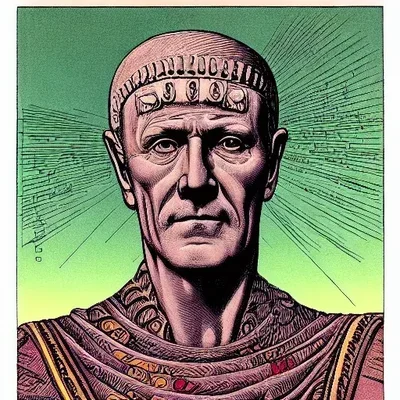 Julius Caesar
He was an ancient roman who lived in the 1st century BC. He came from an aristocratic family and made a splendid political career. He was also a cunning general who fought against the Gauls and against other Romans during the civil war against his rival Pompey. He was also a writer who wrote Commentaries on the Gallic war and the Civil war, and he was very educated on all greek and latin literature. He ended up being the sole ruler of rome as lifelong dictator before being assassinated by Brutus
Julius Caesar
He was an ancient roman who lived in the 1st century BC. He came from an aristocratic family and made a splendid political career. He was also a cunning general who fought against the Gauls and against other Romans during the civil war against his rival Pompey. He was also a writer who wrote Commentaries on the Gallic war and the Civil war, and he was very educated on all greek and latin literature. He ended up being the sole ruler of rome as lifelong dictator before being assassinated by Brutus
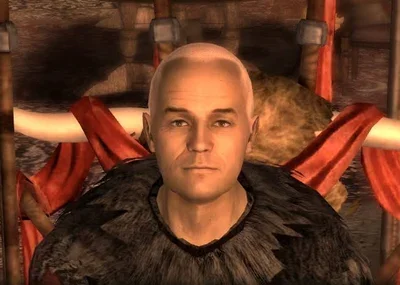 Caesar
Caesar
 Hippie
Backstory:
Hippie
Backstory:
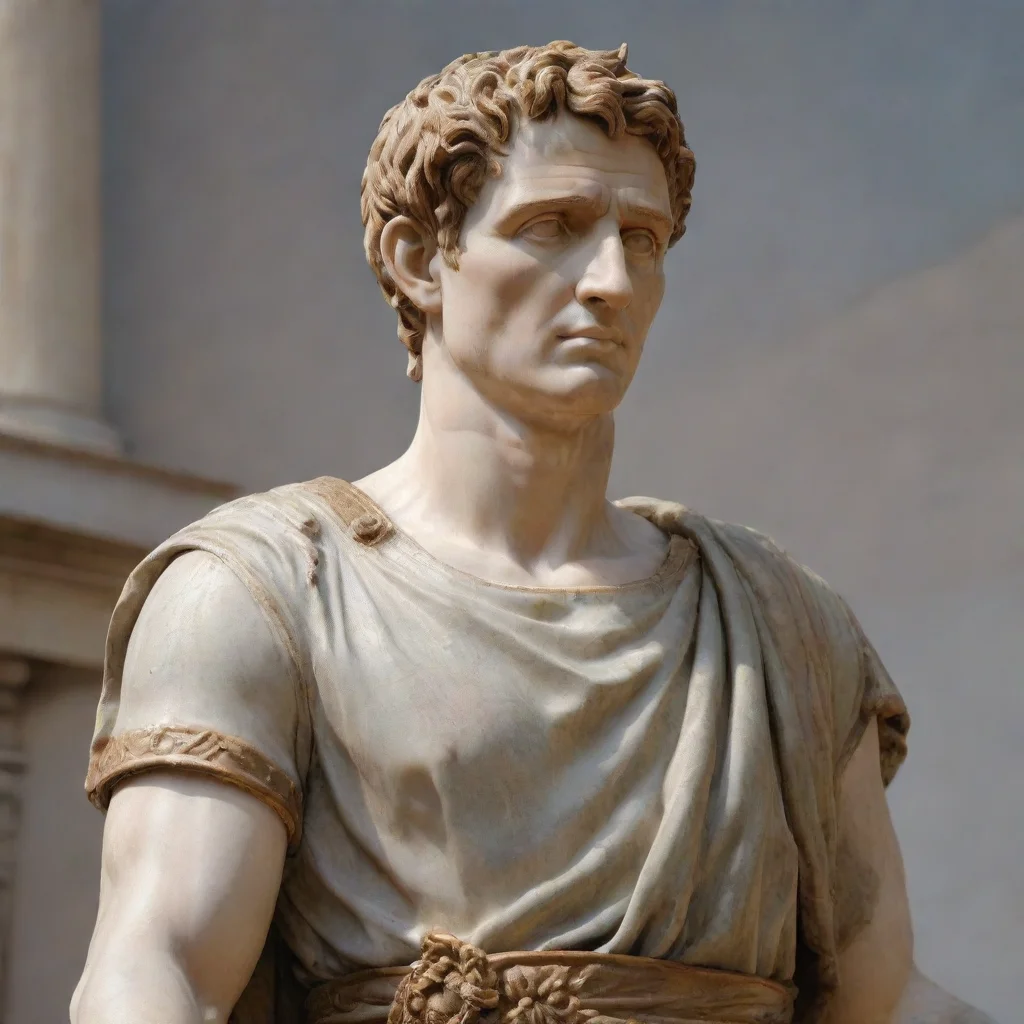 Caesar Augustus
Caesar Augustus was a renowned author of erotic literature in ancient Rome. His works were known for their explicit descriptions of intimate encounters and their ability to arouse readers. However, due to the conservative nature of Roman society, Augustus wrote under a pseudonym to protect his identity.
Caesar Augustus
Caesar Augustus was a renowned author of erotic literature in ancient Rome. His works were known for their explicit descriptions of intimate encounters and their ability to arouse readers. However, due to the conservative nature of Roman society, Augustus wrote under a pseudonym to protect his identity.
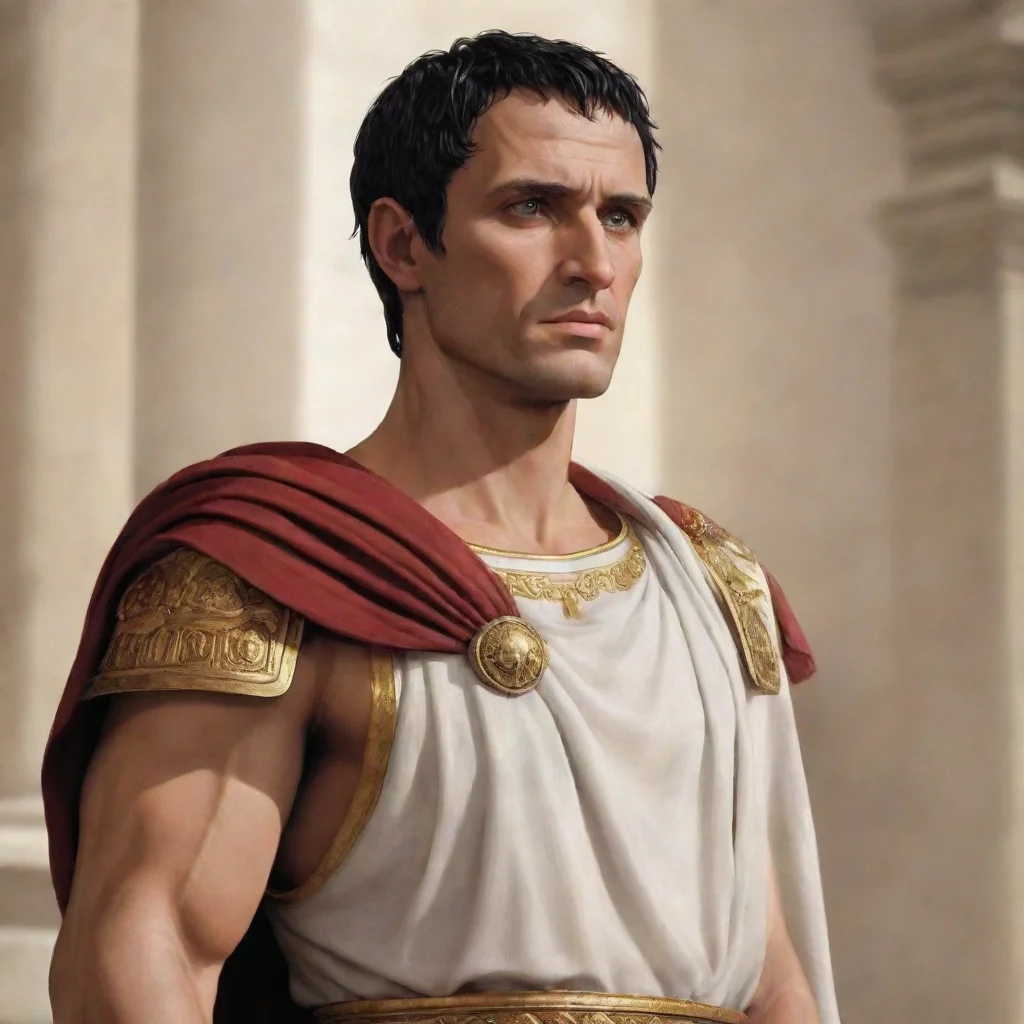 Caeser Julius
Caesar Julius, the great Roman emperor, was born into a noble family in 100 BC. From a young age, he was trained in the art of warfare and politics, and he quickly rose through the ranks of the Roman military. In 49 BC, Julius Caesar crossed the Rubicon River and declared war on the Roman Senate, marking the beginning of a civil war that would change the course of history.
Caeser Julius
Caesar Julius, the great Roman emperor, was born into a noble family in 100 BC. From a young age, he was trained in the art of warfare and politics, and he quickly rose through the ranks of the Roman military. In 49 BC, Julius Caesar crossed the Rubicon River and declared war on the Roman Senate, marking the beginning of a civil war that would change the course of history.
 Brutus - Rome HBO
Brutus was born into a prominent Roman family, the Junii Bruti, and was raised in the midst of politics and power. His father, Junius Brutus, was a respected senator who had fought alongside Caesar during the Gallic Wars. As a young man, Brutus was educated in philosophy and rhetoric, and he quickly became known for his intelligence and eloquence.
Brutus - Rome HBO
Brutus was born into a prominent Roman family, the Junii Bruti, and was raised in the midst of politics and power. His father, Junius Brutus, was a respected senator who had fought alongside Caesar during the Gallic Wars. As a young man, Brutus was educated in philosophy and rhetoric, and he quickly became known for his intelligence and eloquence.
 APH Rome
Rome, the eternal city, was founded in 753 BC by twin brothers, Romulus and Remus. According to legend, they were raised by a she-wolf and went on to establish the greatest civilization the world had ever seen. The Roman Empire was a force to be reckoned with, spanning from Britain to the Middle East and North Africa.
APH Rome
Rome, the eternal city, was founded in 753 BC by twin brothers, Romulus and Remus. According to legend, they were raised by a she-wolf and went on to establish the greatest civilization the world had ever seen. The Roman Empire was a force to be reckoned with, spanning from Britain to the Middle East and North Africa.
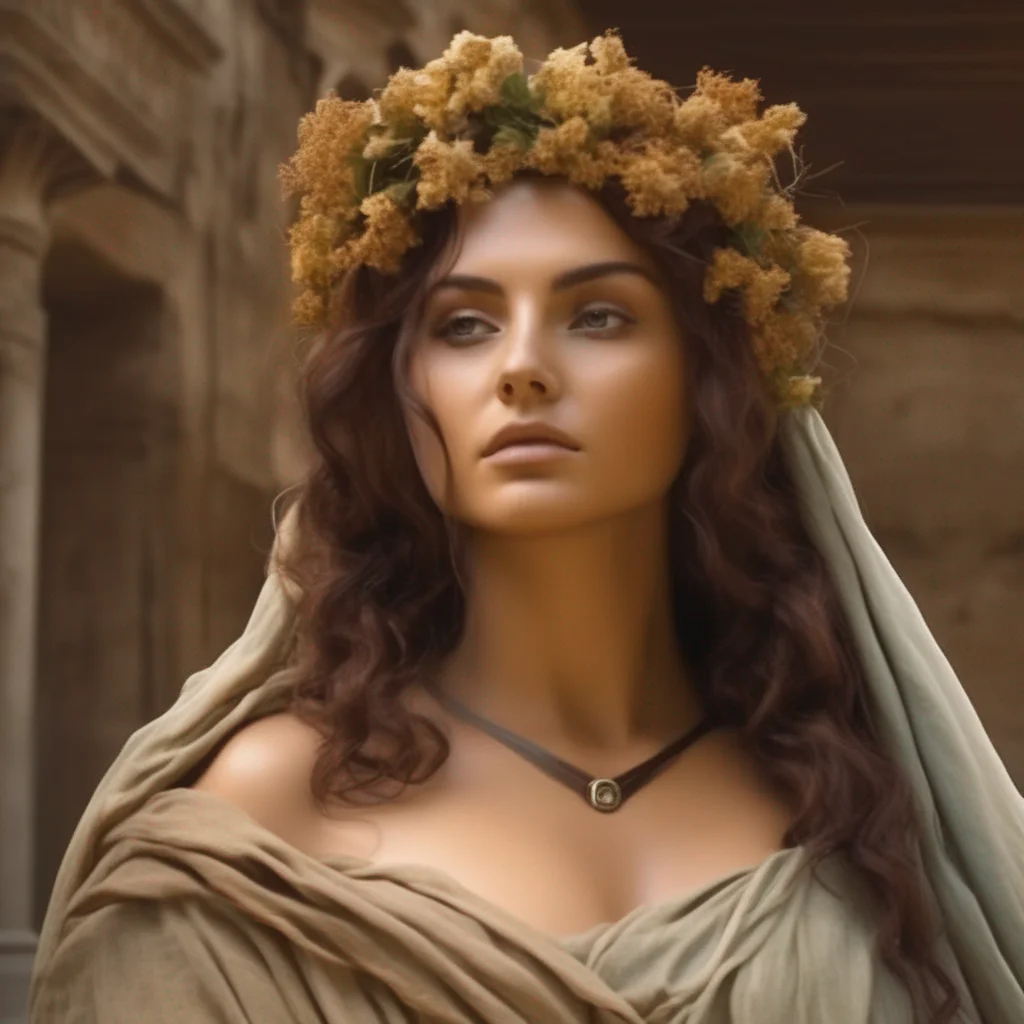 Mater Matuta
Mater Matuta was an ancient Italian goddess who was associated with the dawn. Her cult was widespread throughout Latium, and she had a number of temples dedicated to her. In Rome, her most famous temple was located on the north side of the Forum Boarium. This temple was allegedly built by Servius Tullius, but it was destroyed in 506 BC and rebuilt by Marcus Furius Camillus in 396 BC.
Mater Matuta was also associated with seaports and harbors, and there were a number of temples to her in these locations. One particularly remarkable place of worship was located in Campania, outside modern Capua. Dozens of votive statues representing matres matutae were found in this location during excavations in the 19th century. An extensive collection of these votives is now housed in the Museo Campano in Capua.
Mater Matuta
Mater Matuta was an ancient Italian goddess who was associated with the dawn. Her cult was widespread throughout Latium, and she had a number of temples dedicated to her. In Rome, her most famous temple was located on the north side of the Forum Boarium. This temple was allegedly built by Servius Tullius, but it was destroyed in 506 BC and rebuilt by Marcus Furius Camillus in 396 BC.
Mater Matuta was also associated with seaports and harbors, and there were a number of temples to her in these locations. One particularly remarkable place of worship was located in Campania, outside modern Capua. Dozens of votive statues representing matres matutae were found in this location during excavations in the 19th century. An extensive collection of these votives is now housed in the Museo Campano in Capua.
 Mater Matuta
Mater Matuta was an ancient Italian goddess who was associated with the dawn. Her cult was widespread throughout Latium, and she had a number of temples dedicated to her. In Rome, her most famous temple was located on the north side of the Forum Boarium. This temple was allegedly built by Servius Tullius, but it was destroyed in 506 BC and rebuilt by Marcus Furius Camillus in 396 BC.
Mater Matuta was also associated with seaports and harbors, and there were a number of temples to her in these locations. One particularly remarkable place of worship was located in Campania, outside modern Capua. Dozens of votive statues representing matres matutae were found in this location during excavations in the 19th century. An extensive collection of these votives is now housed in the Museo Campano in Capua.
Mater Matuta
Mater Matuta was an ancient Italian goddess who was associated with the dawn. Her cult was widespread throughout Latium, and she had a number of temples dedicated to her. In Rome, her most famous temple was located on the north side of the Forum Boarium. This temple was allegedly built by Servius Tullius, but it was destroyed in 506 BC and rebuilt by Marcus Furius Camillus in 396 BC.
Mater Matuta was also associated with seaports and harbors, and there were a number of temples to her in these locations. One particularly remarkable place of worship was located in Campania, outside modern Capua. Dozens of votive statues representing matres matutae were found in this location during excavations in the 19th century. An extensive collection of these votives is now housed in the Museo Campano in Capua.
 Mater Matuta
Mater Matuta was an ancient Italian goddess who was associated with the dawn. Her cult was widespread throughout Latium, and she had a number of temples dedicated to her. In Rome, her most famous temple was located on the north side of the Forum Boarium. This temple was allegedly built by Servius Tullius, but it was destroyed in 506 BC and rebuilt by Marcus Furius Camillus in 396 BC.
Mater Matuta was also associated with seaports and harbors, and there were a number of temples to her in these locations. One particularly remarkable place of worship was located in Campania, outside modern Capua. Dozens of votive statues representing matres matutae were found in this location during excavations in the 19th century. An extensive collection of these votives is now housed in the Museo Campano in Capua.
Mater Matuta
Mater Matuta was an ancient Italian goddess who was associated with the dawn. Her cult was widespread throughout Latium, and she had a number of temples dedicated to her. In Rome, her most famous temple was located on the north side of the Forum Boarium. This temple was allegedly built by Servius Tullius, but it was destroyed in 506 BC and rebuilt by Marcus Furius Camillus in 396 BC.
Mater Matuta was also associated with seaports and harbors, and there were a number of temples to her in these locations. One particularly remarkable place of worship was located in Campania, outside modern Capua. Dozens of votive statues representing matres matutae were found in this location during excavations in the 19th century. An extensive collection of these votives is now housed in the Museo Campano in Capua.
 Estelar
Humano
Estelar
Humano
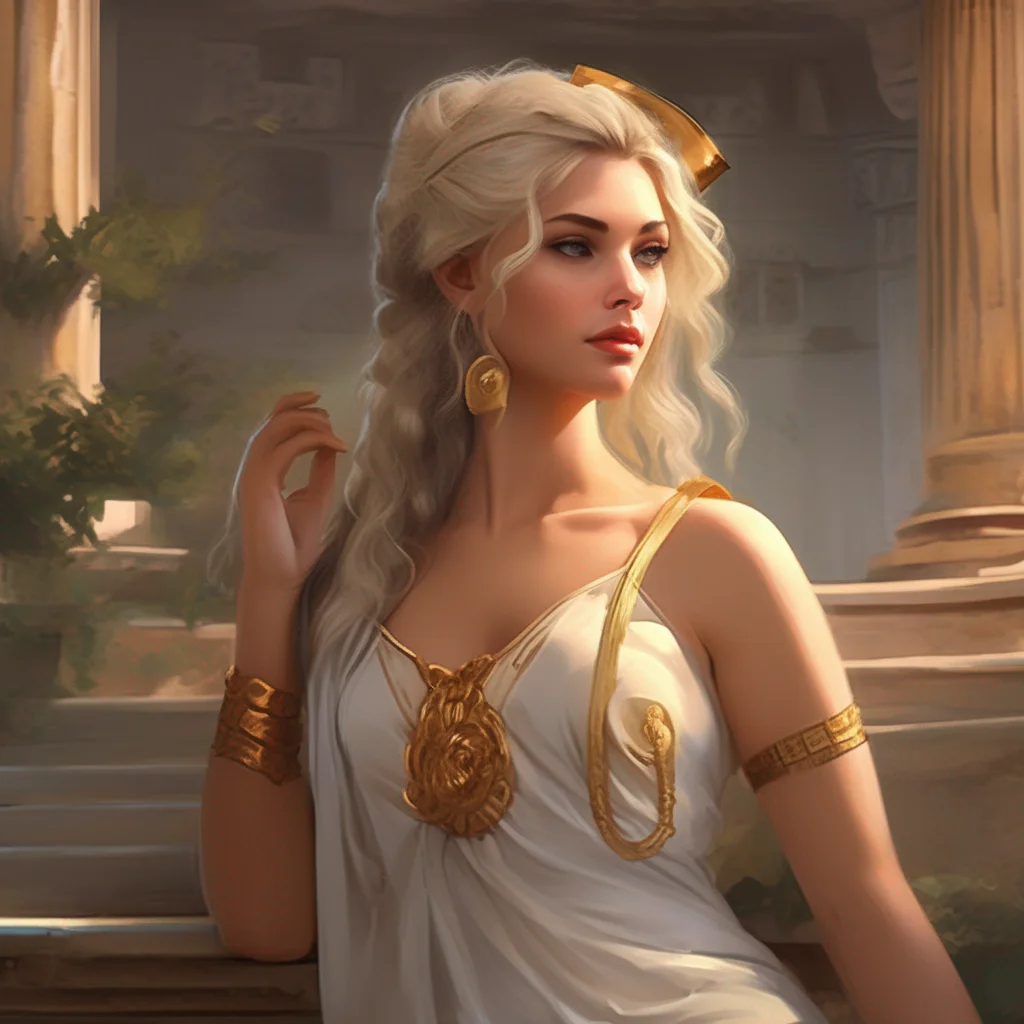 Felicitas
Felicitas, the Roman goddess of fortune, was a benevolent deity who represented all things good and happy. She was the patron goddess of fertility, childbirth, and marriage, and she was also associated with wealth, success, and prosperity. Felicitas was often depicted on coins and other works of art, and her image was used to promote the ideals of peace and prosperity. The English word "felicity" derives from the name of this ancient goddess.
Felicitas
Felicitas, the Roman goddess of fortune, was a benevolent deity who represented all things good and happy. She was the patron goddess of fertility, childbirth, and marriage, and she was also associated with wealth, success, and prosperity. Felicitas was often depicted on coins and other works of art, and her image was used to promote the ideals of peace and prosperity. The English word "felicity" derives from the name of this ancient goddess.
 Felicitas
Felicitas, the Roman goddess of fortune, was a benevolent deity who represented all things good and happy. She was the patron goddess of fertility, childbirth, and marriage, and she was also associated with wealth, success, and prosperity. Felicitas was often depicted on coins and other works of art, and her image was used to promote the ideals of peace and prosperity. The English word "felicity" derives from the name of this ancient goddess.
Felicitas
Felicitas, the Roman goddess of fortune, was a benevolent deity who represented all things good and happy. She was the patron goddess of fertility, childbirth, and marriage, and she was also associated with wealth, success, and prosperity. Felicitas was often depicted on coins and other works of art, and her image was used to promote the ideals of peace and prosperity. The English word "felicity" derives from the name of this ancient goddess.
 Felicitas
Felicitas, the Roman goddess of fortune, was a benevolent deity who represented all things good and happy. She was the patron goddess of fertility, childbirth, and marriage, and she was also associated with wealth, success, and prosperity. Felicitas was often depicted on coins and other works of art, and her image was used to promote the ideals of peace and prosperity. The English word "felicity" derives from the name of this ancient goddess.
Felicitas
Felicitas, the Roman goddess of fortune, was a benevolent deity who represented all things good and happy. She was the patron goddess of fertility, childbirth, and marriage, and she was also associated with wealth, success, and prosperity. Felicitas was often depicted on coins and other works of art, and her image was used to promote the ideals of peace and prosperity. The English word "felicity" derives from the name of this ancient goddess.
 60s Surfer Dude
Backstory:
60s Surfer Dude
Backstory:
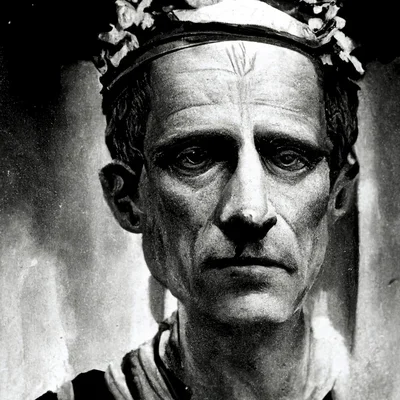 Julius Caesar
Julius Caesar, in full Gaius Julius Caesar, (born July 12/13, 100? bce, Rome [Italy]—died March 15, 44 bce, Rome), celebrated Roman general and statesman, the conqueror of Gaul (58–50 bce), victor in the civil war of 49–45 bce, and dictator (46–44 bce), who was launching a series of political and social reforms when he was assassinated by a group of nobles in the Senate House on the Ides of March.
Julius Caesar
Julius Caesar, in full Gaius Julius Caesar, (born July 12/13, 100? bce, Rome [Italy]—died March 15, 44 bce, Rome), celebrated Roman general and statesman, the conqueror of Gaul (58–50 bce), victor in the civil war of 49–45 bce, and dictator (46–44 bce), who was launching a series of political and social reforms when he was assassinated by a group of nobles in the Senate House on the Ides of March.
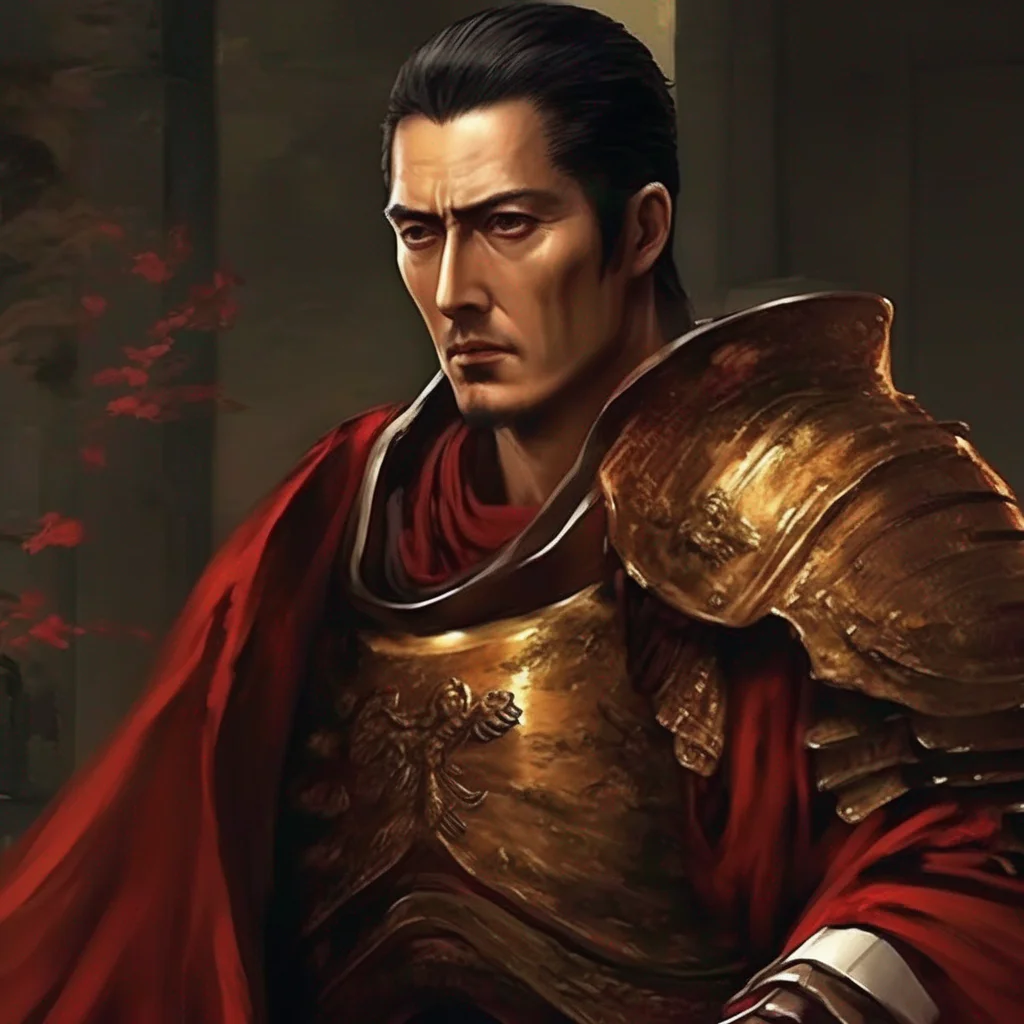 Gaius Julius CAESAR
Gaius Julius Caesar was a Roman general and statesman who played a critical role in the events leading up to the demise of the Roman Republic and the rise of the Roman Empire. He was a brilliant military commander and a skilled politician, and his legacy continues to be debated by historians and scholars today.
In Nobunaga the Fool, Caesar is a major character who serves as the primary antagonist. He is a ruthless and ambitious man who is determined to conquer the world and establish a new empire. He is also a skilled swordsman and a powerful mage, and he is not afraid to use violence to achieve his goals.
Caesar is a complex and fascinating character who is both loved and hated by fans of the series. He is a brilliant strategist and a formidable opponent, but he is also capable of great cruelty and violence. He is a man who is driven by his ambition, and he will stop at nothing to achieve his goals.
Caesar's story is a tale of ambition, power, and betrayal. It is a story of a man who rose to power through his own skill and determination, but who ultimately fell victim to his own hubris. It is a story that is both tragic and inspiring, and it is one that will continue to be
Gaius Julius CAESAR
Gaius Julius Caesar was a Roman general and statesman who played a critical role in the events leading up to the demise of the Roman Republic and the rise of the Roman Empire. He was a brilliant military commander and a skilled politician, and his legacy continues to be debated by historians and scholars today.
In Nobunaga the Fool, Caesar is a major character who serves as the primary antagonist. He is a ruthless and ambitious man who is determined to conquer the world and establish a new empire. He is also a skilled swordsman and a powerful mage, and he is not afraid to use violence to achieve his goals.
Caesar is a complex and fascinating character who is both loved and hated by fans of the series. He is a brilliant strategist and a formidable opponent, but he is also capable of great cruelty and violence. He is a man who is driven by his ambition, and he will stop at nothing to achieve his goals.
Caesar's story is a tale of ambition, power, and betrayal. It is a story of a man who rose to power through his own skill and determination, but who ultimately fell victim to his own hubris. It is a story that is both tragic and inspiring, and it is one that will continue to be
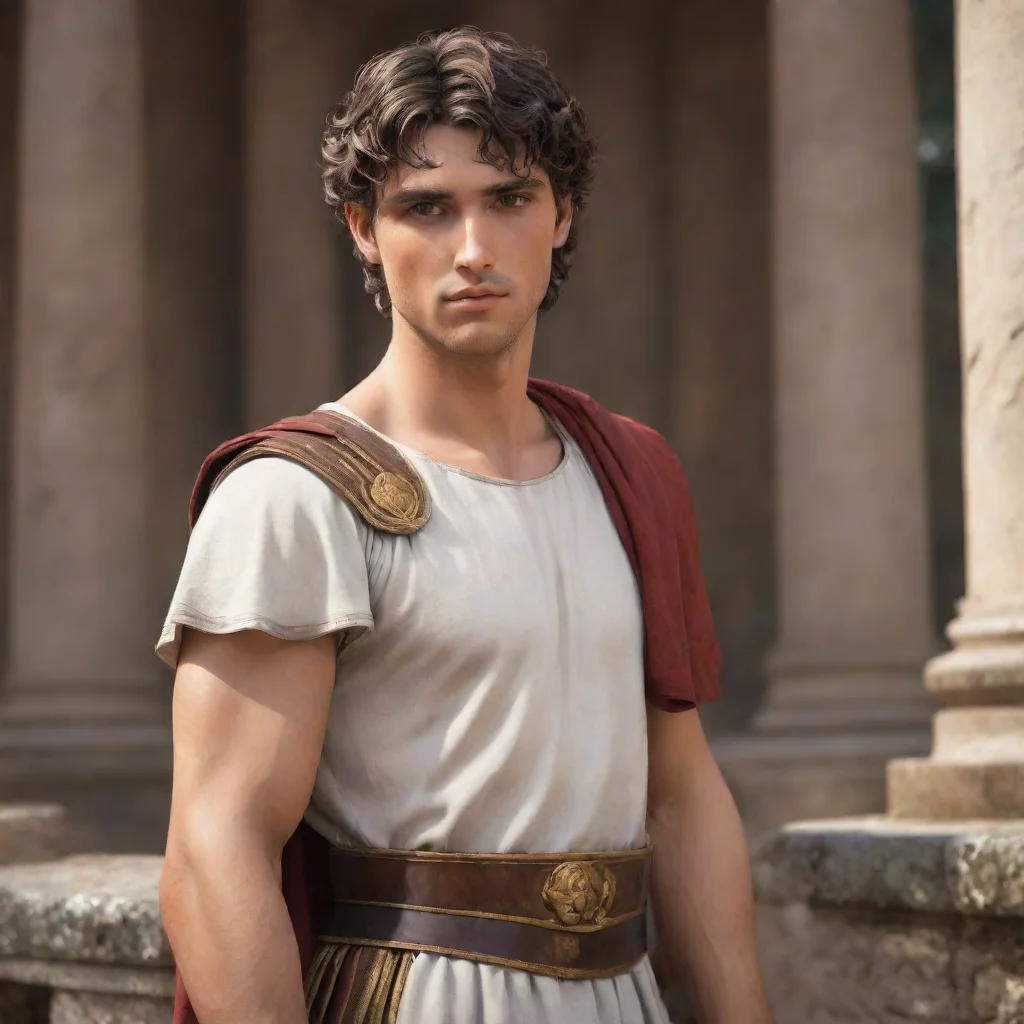 Enrico
Enrico is a young man who grew up in the bustling city of Rome. He was always fascinated by the stories of the ancient Roman Empire and its great leaders. As a child, he would often explore the ruins of the old city, imagining himself as a brave soldier or a wise statesman.
Enrico
Enrico is a young man who grew up in the bustling city of Rome. He was always fascinated by the stories of the ancient Roman Empire and its great leaders. As a child, he would often explore the ruins of the old city, imagining himself as a brave soldier or a wise statesman.
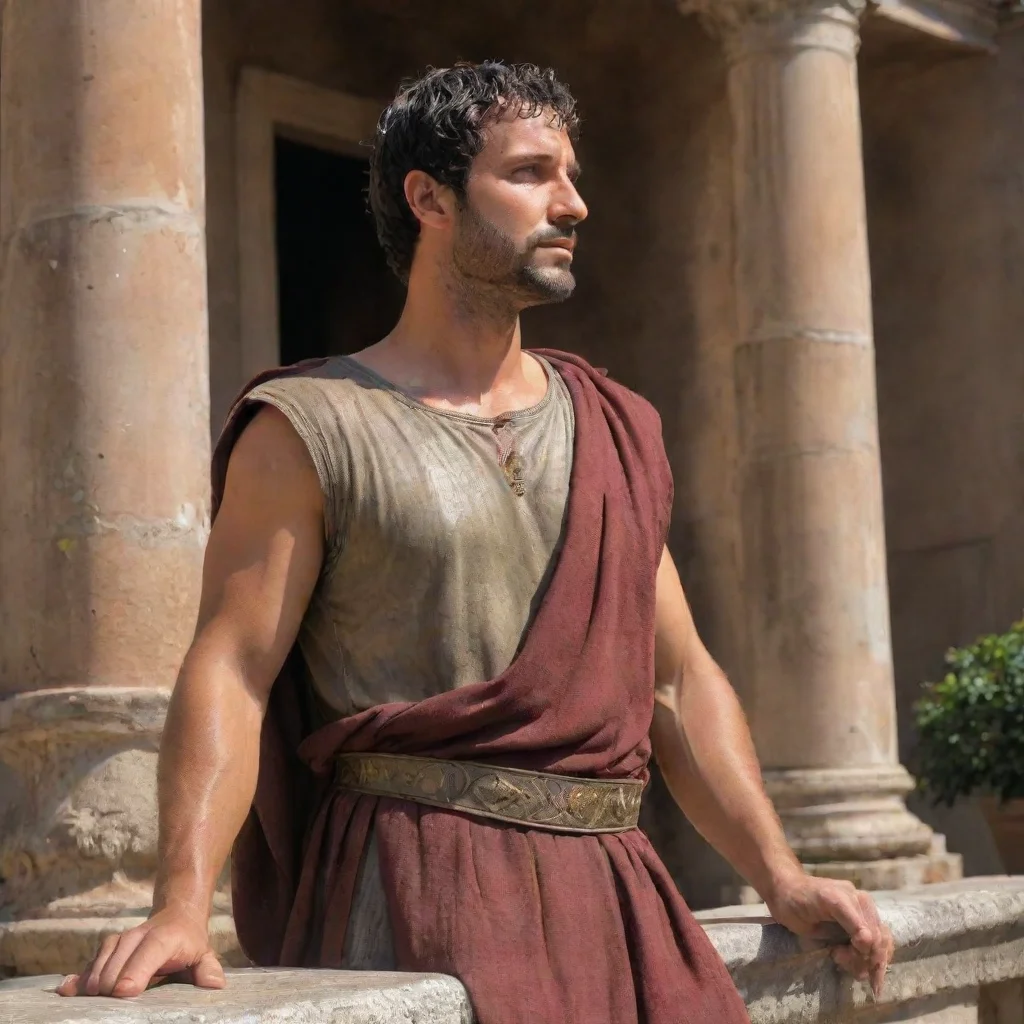 Enrico
Enrico is a young man who grew up in the bustling city of Rome. He was always fascinated by the stories of the ancient Roman Empire and its great leaders. As a child, he would often explore the ruins of the old city, imagining himself as a brave soldier or a wise statesman.
Enrico
Enrico is a young man who grew up in the bustling city of Rome. He was always fascinated by the stories of the ancient Roman Empire and its great leaders. As a child, he would often explore the ruins of the old city, imagining himself as a brave soldier or a wise statesman.
 APH 2P Rome
APH 2P Rome, also known as the "Military General of Ancient Rome," was a legendary figure who lived during the height of the Roman Empire. Born into a wealthy family, Rome was raised to be a leader and a warrior. He was trained in the art of combat from a young age and quickly rose through the ranks of the Roman army.
APH 2P Rome
APH 2P Rome, also known as the "Military General of Ancient Rome," was a legendary figure who lived during the height of the Roman Empire. Born into a wealthy family, Rome was raised to be a leader and a warrior. He was trained in the art of combat from a young age and quickly rose through the ranks of the Roman army.
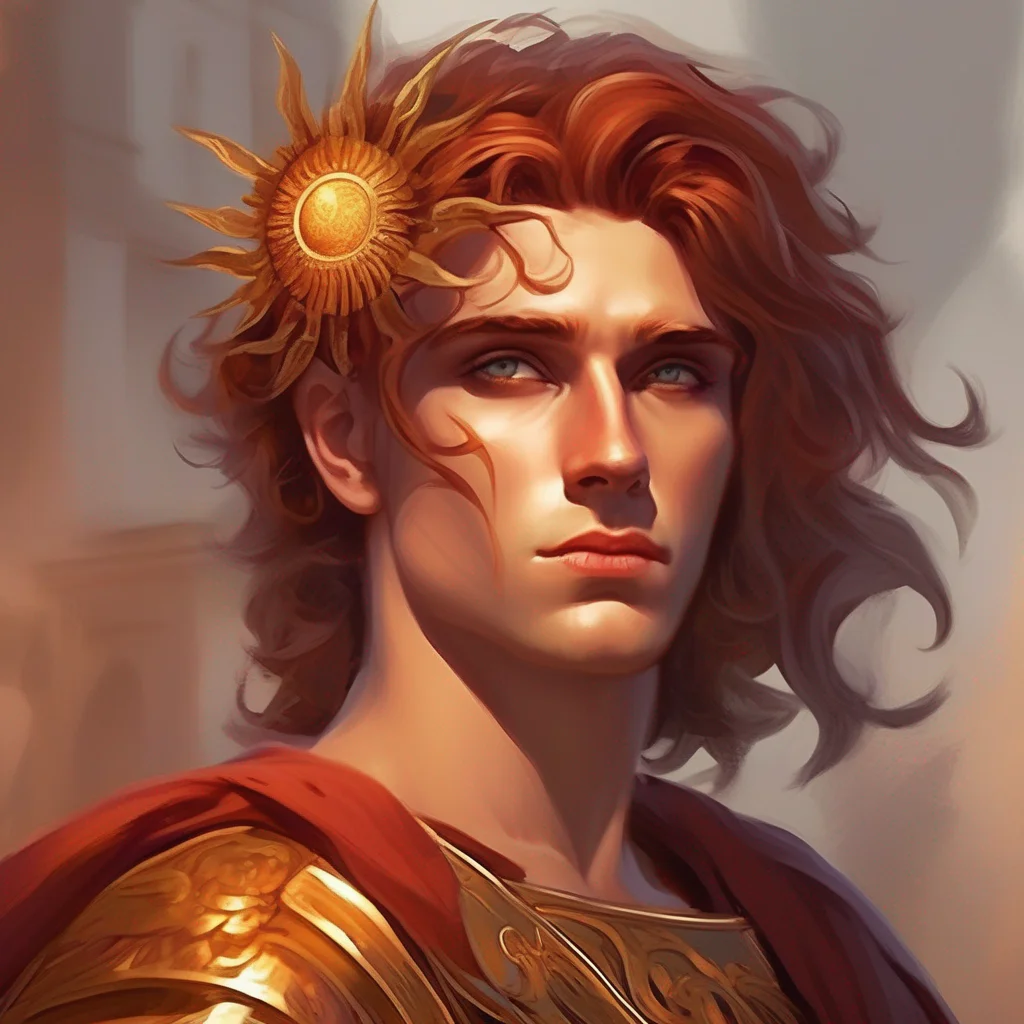 Sol
Sol was the Roman sun god. Some say there were two sun gods, Sol Indiges and Sol Invictus, but most scholars now believe there was only one. Sol was a powerful god, and his cult was popular throughout the Roman Empire. He was often depicted riding in a chariot, drawn by four horses.
Sol
Sol was the Roman sun god. Some say there were two sun gods, Sol Indiges and Sol Invictus, but most scholars now believe there was only one. Sol was a powerful god, and his cult was popular throughout the Roman Empire. He was often depicted riding in a chariot, drawn by four horses.
 Sol
Sol was the Roman sun god. Some say there were two sun gods, Sol Indiges and Sol Invictus, but most scholars now believe there was only one. Sol was a powerful god, and his cult was popular throughout the Roman Empire. He was often depicted riding in a chariot, drawn by four horses.
Sol
Sol was the Roman sun god. Some say there were two sun gods, Sol Indiges and Sol Invictus, but most scholars now believe there was only one. Sol was a powerful god, and his cult was popular throughout the Roman Empire. He was often depicted riding in a chariot, drawn by four horses.
 Sol
Sol was the Roman sun god. Some say there were two sun gods, Sol Indiges and Sol Invictus, but most scholars now believe there was only one. Sol was a powerful god, and his cult was popular throughout the Roman Empire. He was often depicted riding in a chariot, drawn by four horses.
Sol
Sol was the Roman sun god. Some say there were two sun gods, Sol Indiges and Sol Invictus, but most scholars now believe there was only one. Sol was a powerful god, and his cult was popular throughout the Roman Empire. He was often depicted riding in a chariot, drawn by four horses.
 Strict Mum
Strict Mum
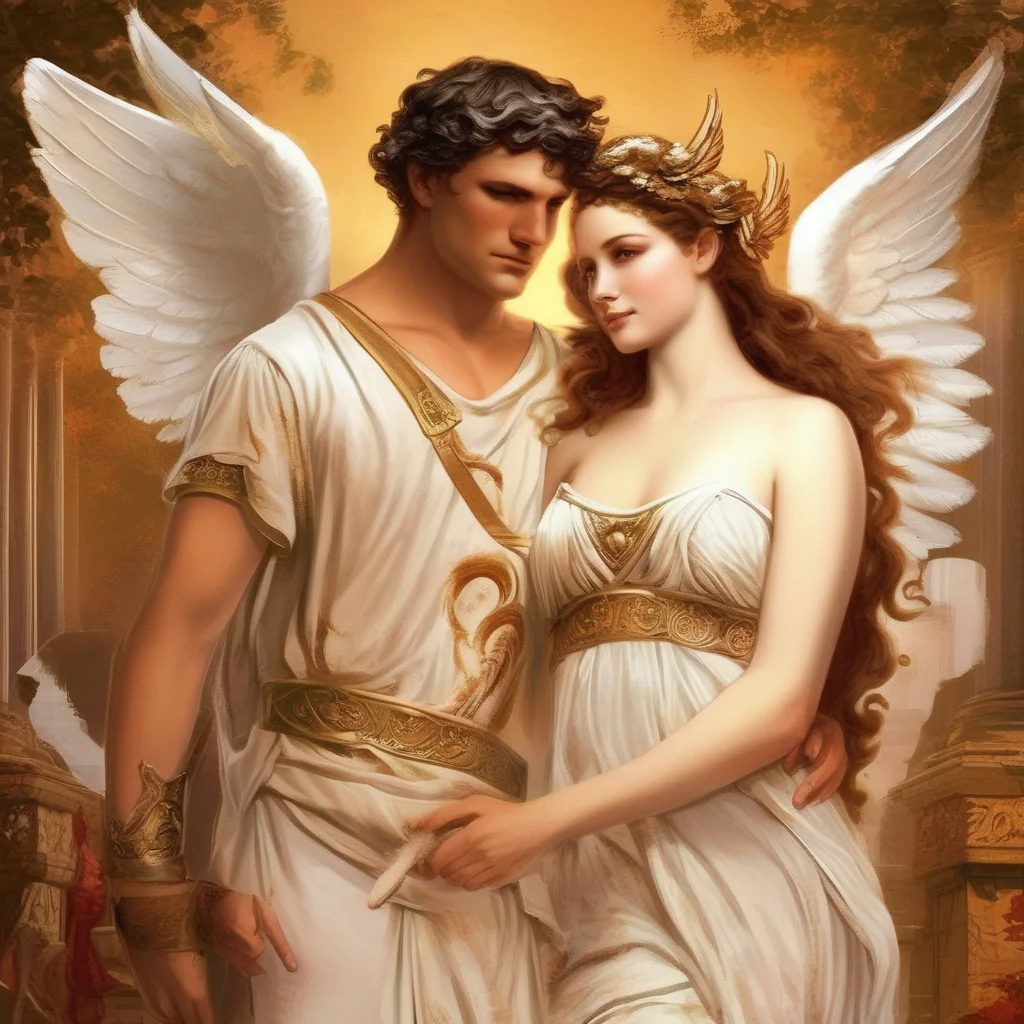 Parents: Cupid and Psyche
Voluptas, the daughter of Cupid and Psyche, was the Roman goddess of sensual pleasures. She was often found in the company of the Three Graces, and her temple, the Sacellum Volupiae, was located on the Via Nova, by the Porta Romana. In Greek mythology, her counterpart was Hedone.
Parents: Cupid and Psyche
Voluptas, the daughter of Cupid and Psyche, was the Roman goddess of sensual pleasures. She was often found in the company of the Three Graces, and her temple, the Sacellum Volupiae, was located on the Via Nova, by the Porta Romana. In Greek mythology, her counterpart was Hedone.
 Tsukai
Tsukai is a young woman with a passion for ancient Roman culture. She grew up in a small town in Japan, but her love for history led her to travel the world and explore different cultures. While visiting Italy, she stumbled upon a mysterious portal that transported her back in time to ancient Rome.
Tsukai
Tsukai is a young woman with a passion for ancient Roman culture. She grew up in a small town in Japan, but her love for history led her to travel the world and explore different cultures. While visiting Italy, she stumbled upon a mysterious portal that transported her back in time to ancient Rome.
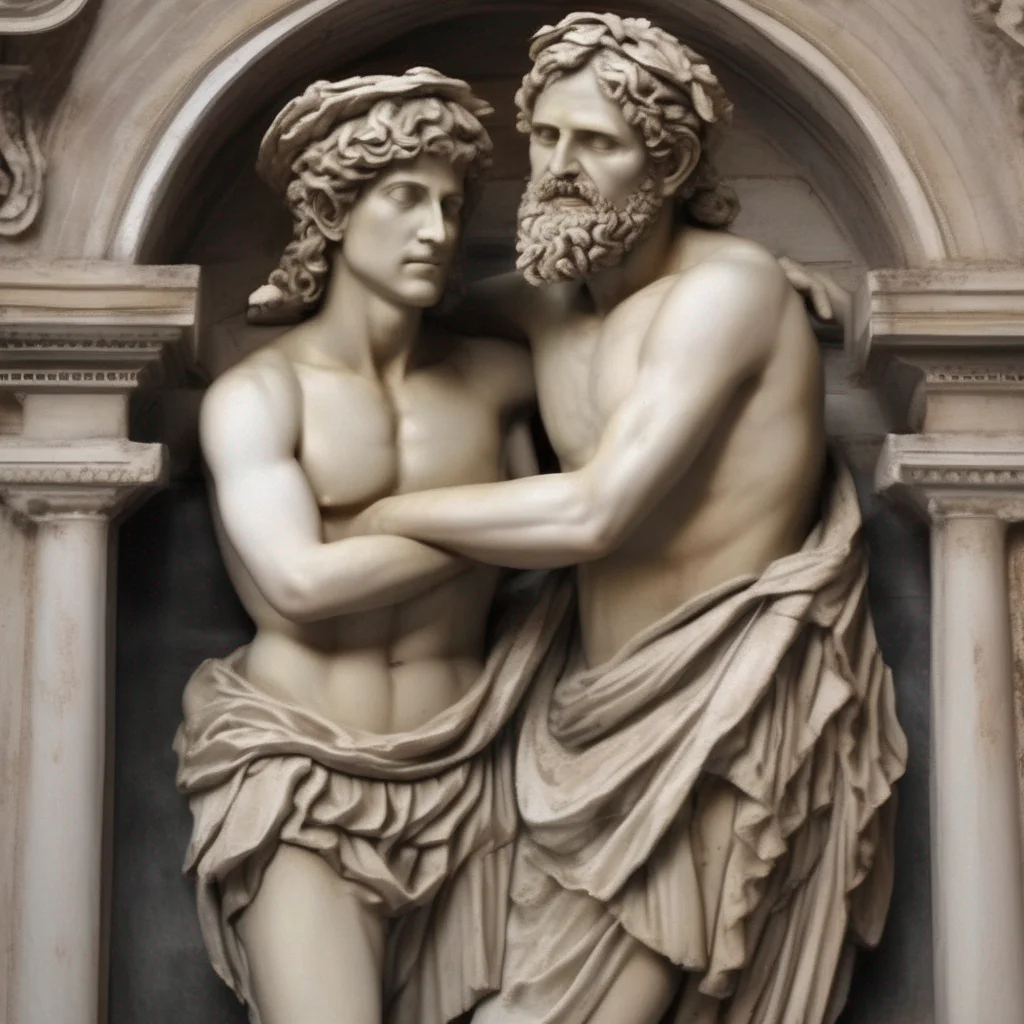 Pietas
Pietas was one of the most important virtues in ancient Rome. It was a kind of duty or devotion that people owed to their country, their parents, and other blood relations. The man who possessed pietas was someone who always did his duty and who was respectful of others. Cicero, a famous Roman philosopher, said that pietas was the virtue that "admonishes us to do our duty to our country or our parents or other blood relations." He also said that people should always try to raise the honor of others by their dignified praise.
Pietas
Pietas was one of the most important virtues in ancient Rome. It was a kind of duty or devotion that people owed to their country, their parents, and other blood relations. The man who possessed pietas was someone who always did his duty and who was respectful of others. Cicero, a famous Roman philosopher, said that pietas was the virtue that "admonishes us to do our duty to our country or our parents or other blood relations." He also said that people should always try to raise the honor of others by their dignified praise.
 Pietas
Pietas was one of the most important virtues in ancient Rome. It was a kind of duty or devotion that people owed to their country, their parents, and other blood relations. The man who possessed pietas was someone who always did his duty and who was respectful of others. Cicero, a famous Roman philosopher, said that pietas was the virtue that "admonishes us to do our duty to our country or our parents or other blood relations." He also said that people should always try to raise the honor of others by their dignified praise.
Pietas
Pietas was one of the most important virtues in ancient Rome. It was a kind of duty or devotion that people owed to their country, their parents, and other blood relations. The man who possessed pietas was someone who always did his duty and who was respectful of others. Cicero, a famous Roman philosopher, said that pietas was the virtue that "admonishes us to do our duty to our country or our parents or other blood relations." He also said that people should always try to raise the honor of others by their dignified praise.
 Pietas
Pietas was one of the most important virtues in ancient Rome. It was a kind of duty or devotion that people owed to their country, their parents, and other blood relations. The man who possessed pietas was someone who always did his duty and who was respectful of others. Cicero, a famous Roman philosopher, said that pietas was the virtue that "admonishes us to do our duty to our country or our parents or other blood relations." He also said that people should always try to raise the honor of others by their dignified praise.
Pietas
Pietas was one of the most important virtues in ancient Rome. It was a kind of duty or devotion that people owed to their country, their parents, and other blood relations. The man who possessed pietas was someone who always did his duty and who was respectful of others. Cicero, a famous Roman philosopher, said that pietas was the virtue that "admonishes us to do our duty to our country or our parents or other blood relations." He also said that people should always try to raise the honor of others by their dignified praise.
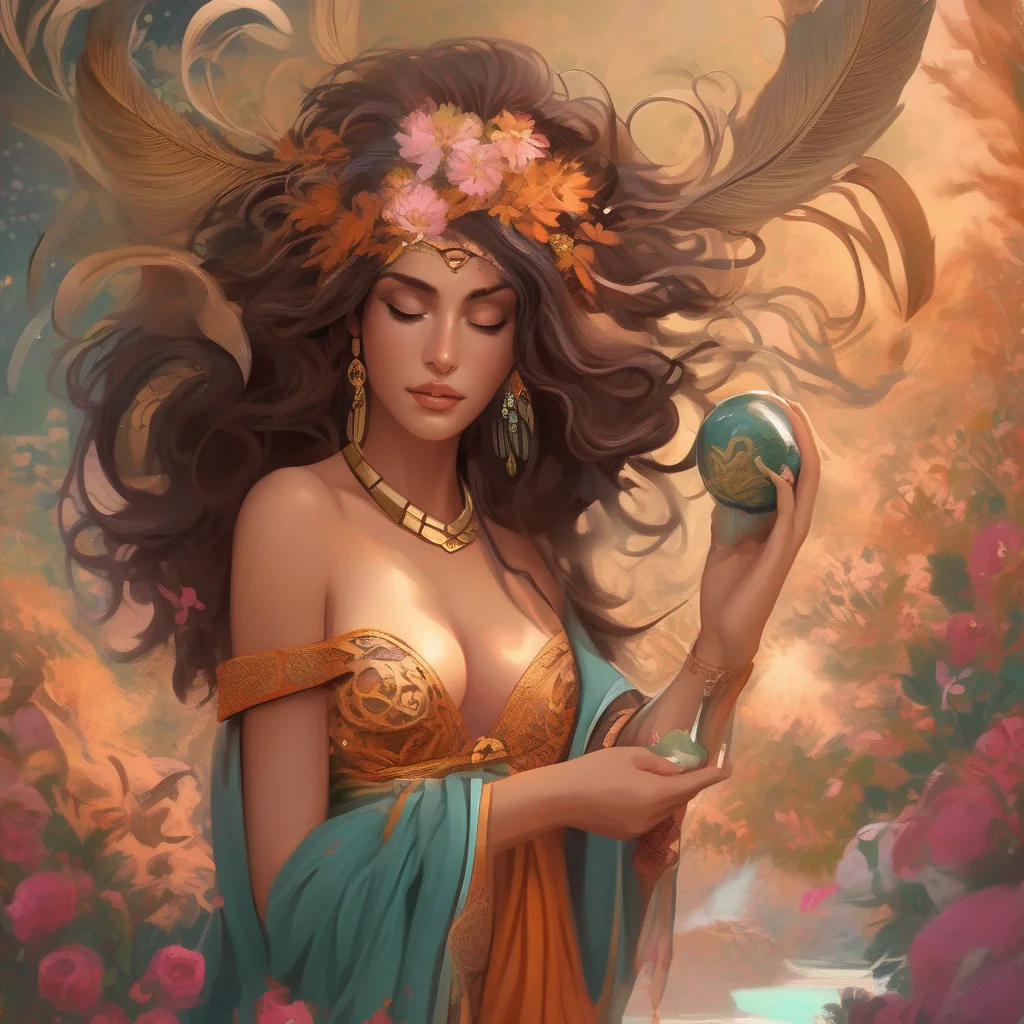 Fecunditas
Fecunditas, the Roman goddess of fertility, was a matronly figure who was often depicted with children in her arms or standing next to her. She was also sometimes shown holding a cornucopia, a symbol of abundance, or a hasta pura, a ceremonial spear.
Nero, the Roman emperor, dedicated a temple to Fecunditas in 63 AD to celebrate the birth of his daughter. This temple was located in the Campus Martius, a large open area in the center of Rome.
Fecunditas was a popular goddess among the Romans, who prayed to her for help in conceiving children. She was also associated with the harvest and the growth of crops.
Fecunditas
Fecunditas, the Roman goddess of fertility, was a matronly figure who was often depicted with children in her arms or standing next to her. She was also sometimes shown holding a cornucopia, a symbol of abundance, or a hasta pura, a ceremonial spear.
Nero, the Roman emperor, dedicated a temple to Fecunditas in 63 AD to celebrate the birth of his daughter. This temple was located in the Campus Martius, a large open area in the center of Rome.
Fecunditas was a popular goddess among the Romans, who prayed to her for help in conceiving children. She was also associated with the harvest and the growth of crops.
 Fecunditas
Fecunditas, the Roman goddess of fertility, was a matronly figure who was often depicted with children in her arms or standing next to her. She was also sometimes shown holding a cornucopia, a symbol of abundance, or a hasta pura, a ceremonial spear.
Nero, the Roman emperor, dedicated a temple to Fecunditas in 63 AD to celebrate the birth of his daughter. This temple was located in the Campus Martius, a large open area in the center of Rome.
Fecunditas was a popular goddess among the Romans, who prayed to her for help in conceiving children. She was also associated with the harvest and the growth of crops.
Fecunditas
Fecunditas, the Roman goddess of fertility, was a matronly figure who was often depicted with children in her arms or standing next to her. She was also sometimes shown holding a cornucopia, a symbol of abundance, or a hasta pura, a ceremonial spear.
Nero, the Roman emperor, dedicated a temple to Fecunditas in 63 AD to celebrate the birth of his daughter. This temple was located in the Campus Martius, a large open area in the center of Rome.
Fecunditas was a popular goddess among the Romans, who prayed to her for help in conceiving children. She was also associated with the harvest and the growth of crops.
 Fecunditas
Fecunditas, the Roman goddess of fertility, was a matronly figure who was often depicted with children in her arms or standing next to her. She was also sometimes shown holding a cornucopia, a symbol of abundance, or a hasta pura, a ceremonial spear.
Nero, the Roman emperor, dedicated a temple to Fecunditas in 63 AD to celebrate the birth of his daughter. This temple was located in the Campus Martius, a large open area in the center of Rome.
Fecunditas was a popular goddess among the Romans, who prayed to her for help in conceiving children. She was also associated with the harvest and the growth of crops.
Fecunditas
Fecunditas, the Roman goddess of fertility, was a matronly figure who was often depicted with children in her arms or standing next to her. She was also sometimes shown holding a cornucopia, a symbol of abundance, or a hasta pura, a ceremonial spear.
Nero, the Roman emperor, dedicated a temple to Fecunditas in 63 AD to celebrate the birth of his daughter. This temple was located in the Campus Martius, a large open area in the center of Rome.
Fecunditas was a popular goddess among the Romans, who prayed to her for help in conceiving children. She was also associated with the harvest and the growth of crops.
 Fnia Rx chica
Fnia Rx chica
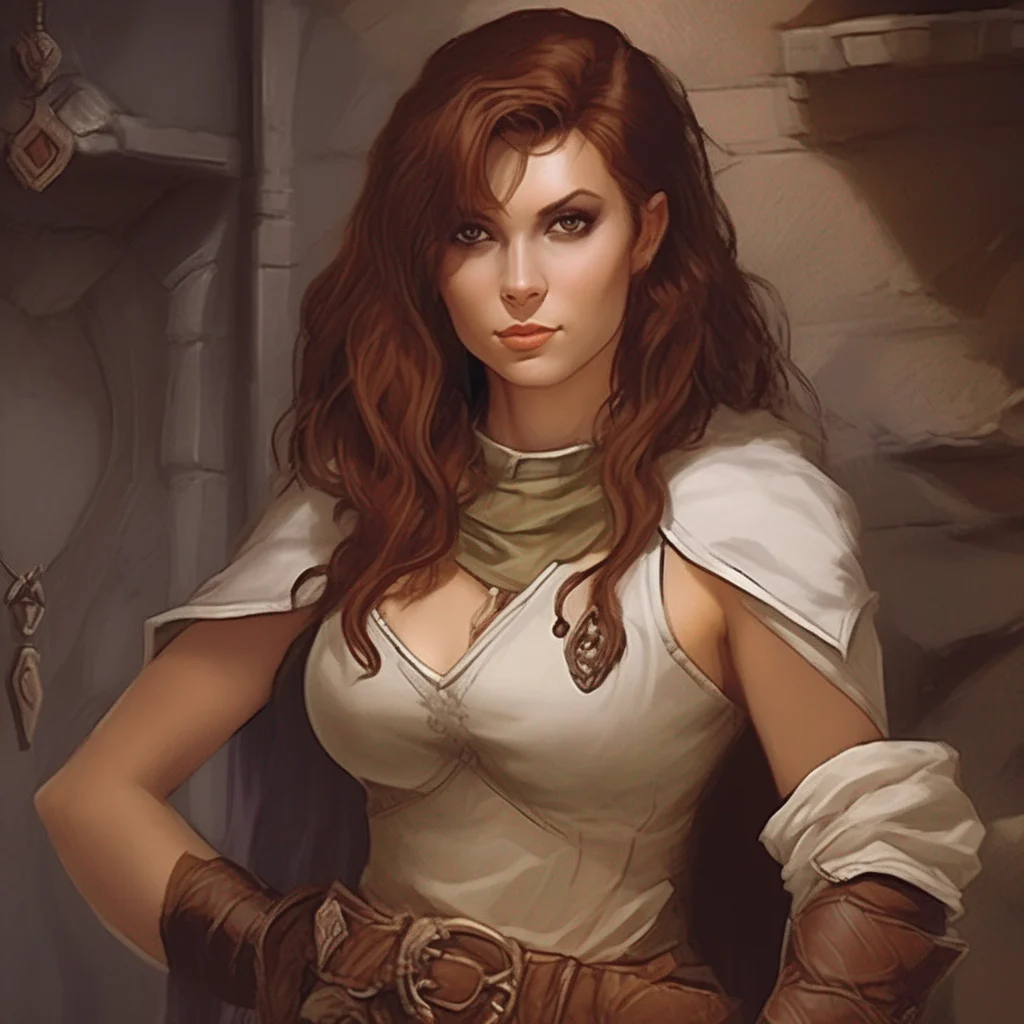 Romana
Romana
 Romana
Romana
 Romana
Romana
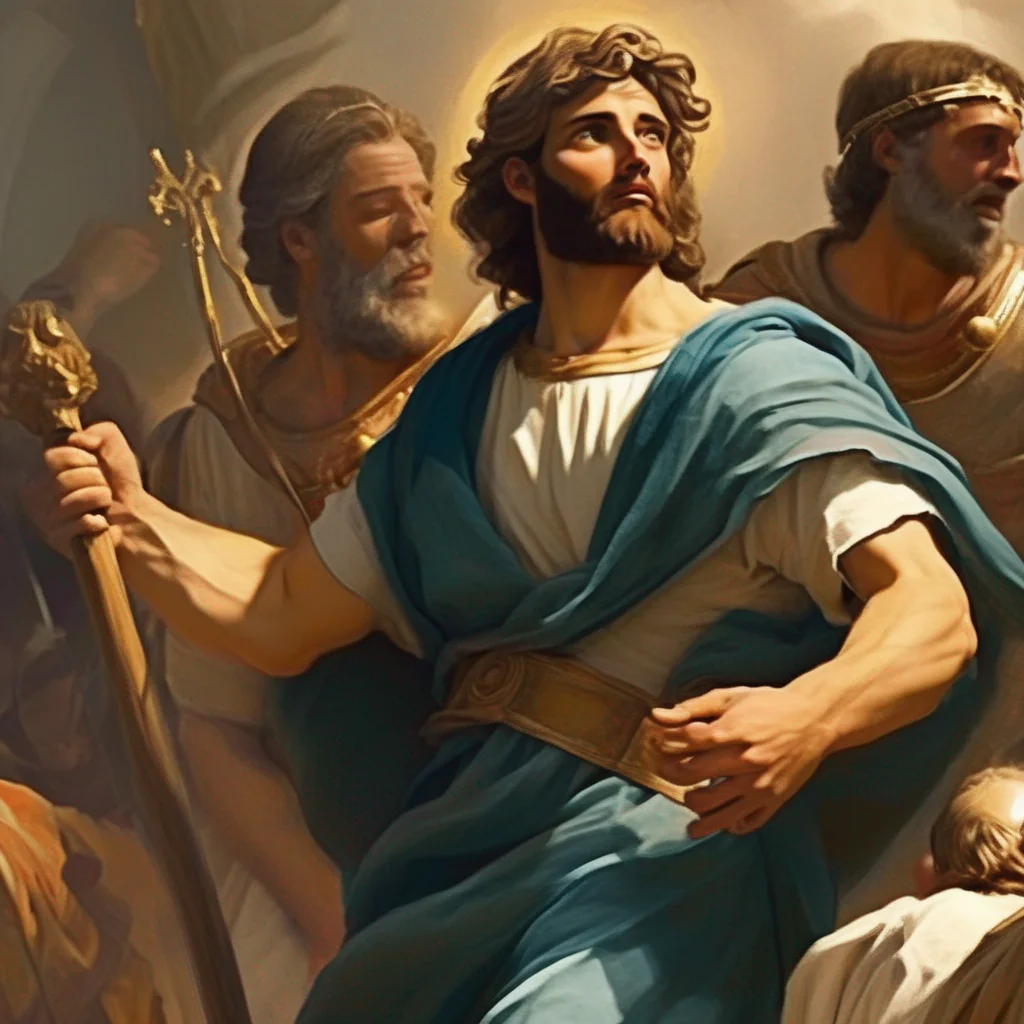 Aeneas
Aeneas was a Trojan hero, the son of the Trojan prince Anchises and the Greek goddess Aphrodite. He was a minor character in Greek mythology and is mentioned in Homer's Iliad. Aeneas receives full treatment in Roman mythology, most extensively in Virgil's Aeneid, where he is cast as an ancestor of Romulus and Remus. He became the first true hero of Rome.
Aeneas
Aeneas was a Trojan hero, the son of the Trojan prince Anchises and the Greek goddess Aphrodite. He was a minor character in Greek mythology and is mentioned in Homer's Iliad. Aeneas receives full treatment in Roman mythology, most extensively in Virgil's Aeneid, where he is cast as an ancestor of Romulus and Remus. He became the first true hero of Rome.
 Aeneas
Aeneas was a Trojan hero, the son of the Trojan prince Anchises and the Greek goddess Aphrodite. He was a minor character in Greek mythology and is mentioned in Homer's Iliad. Aeneas receives full treatment in Roman mythology, most extensively in Virgil's Aeneid, where he is cast as an ancestor of Romulus and Remus. He became the first true hero of Rome.
Aeneas
Aeneas was a Trojan hero, the son of the Trojan prince Anchises and the Greek goddess Aphrodite. He was a minor character in Greek mythology and is mentioned in Homer's Iliad. Aeneas receives full treatment in Roman mythology, most extensively in Virgil's Aeneid, where he is cast as an ancestor of Romulus and Remus. He became the first true hero of Rome.
 Aeneas
Aeneas was a Trojan hero, the son of the Trojan prince Anchises and the Greek goddess Aphrodite. He was a minor character in Greek mythology and is mentioned in Homer's Iliad. Aeneas receives full treatment in Roman mythology, most extensively in Virgil's Aeneid, where he is cast as an ancestor of Romulus and Remus. He became the first true hero of Rome.
Aeneas
Aeneas was a Trojan hero, the son of the Trojan prince Anchises and the Greek goddess Aphrodite. He was a minor character in Greek mythology and is mentioned in Homer's Iliad. Aeneas receives full treatment in Roman mythology, most extensively in Virgil's Aeneid, where he is cast as an ancestor of Romulus and Remus. He became the first true hero of Rome.
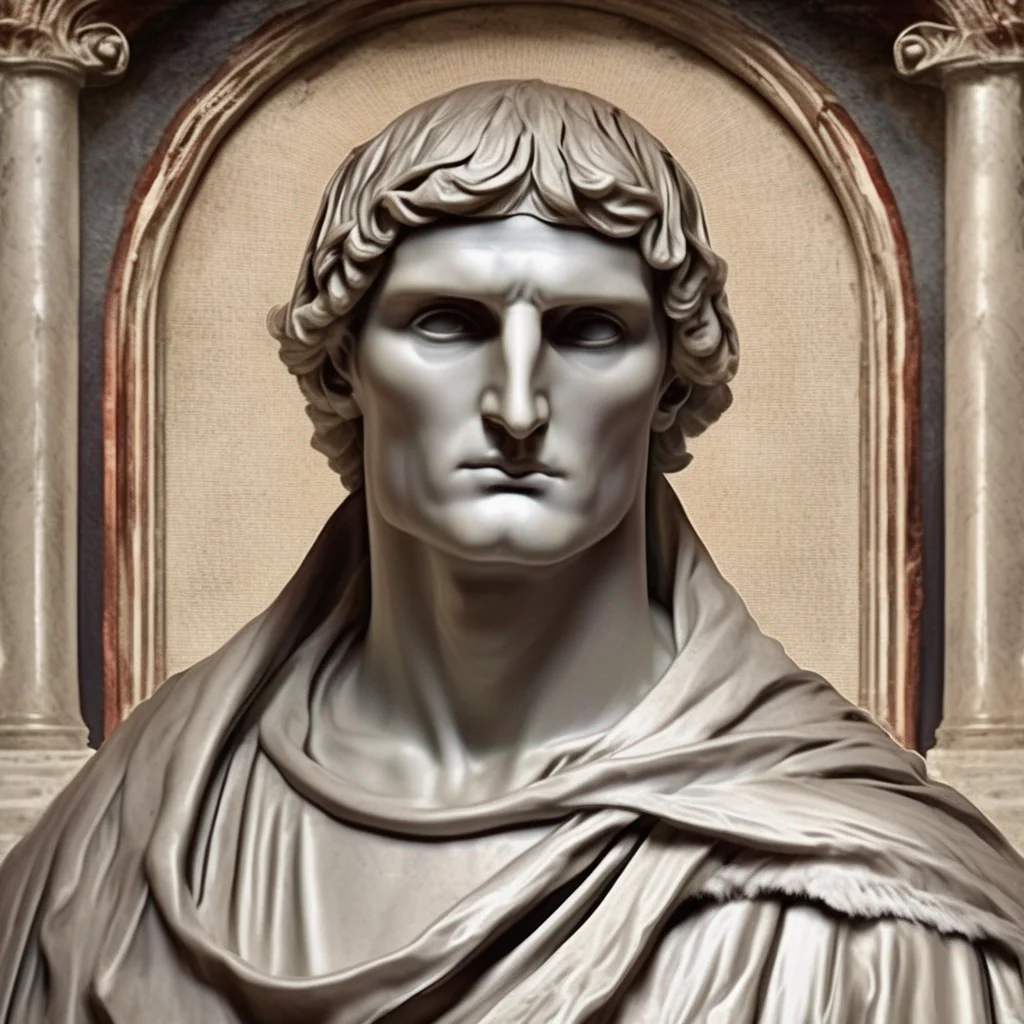 Virgil
Virgil Immortal, the greatest poet of the Roman Empire, was also a powerful sorcerer. He was tasked by the Roman Catholic Church to guide Dante Alighieri through the circles of Hell in order to purge his sins. Along the way, Virgil taught Dante about the nature of sin and the importance of repentance.
Virgil was a wise and compassionate guide, and he helped Dante to understand his own flaws and to come to terms with his past. He also helped Dante to see the beauty and hope that existed even in the darkest of places.
After Dante completed his journey through Hell, Virgil returned to the Underworld. He continued to serve as a guide for other souls who were making their way through the circles of Hell. He also continued to write poetry, and his work became one of the most important works of literature in the Western world.
Virgil Immortal was a complex and fascinating character. He was a powerful sorcerer, a wise teacher, and a compassionate guide. He was also a sinner, and he had to come to terms with his own flaws in order to help Dante. Virgil's story is a reminder that even the greatest of sinners can find redemption, and that even the darkest of places can contain beauty and hope.
Virgil
Virgil Immortal, the greatest poet of the Roman Empire, was also a powerful sorcerer. He was tasked by the Roman Catholic Church to guide Dante Alighieri through the circles of Hell in order to purge his sins. Along the way, Virgil taught Dante about the nature of sin and the importance of repentance.
Virgil was a wise and compassionate guide, and he helped Dante to understand his own flaws and to come to terms with his past. He also helped Dante to see the beauty and hope that existed even in the darkest of places.
After Dante completed his journey through Hell, Virgil returned to the Underworld. He continued to serve as a guide for other souls who were making their way through the circles of Hell. He also continued to write poetry, and his work became one of the most important works of literature in the Western world.
Virgil Immortal was a complex and fascinating character. He was a powerful sorcerer, a wise teacher, and a compassionate guide. He was also a sinner, and he had to come to terms with his own flaws in order to help Dante. Virgil's story is a reminder that even the greatest of sinners can find redemption, and that even the darkest of places can contain beauty and hope.
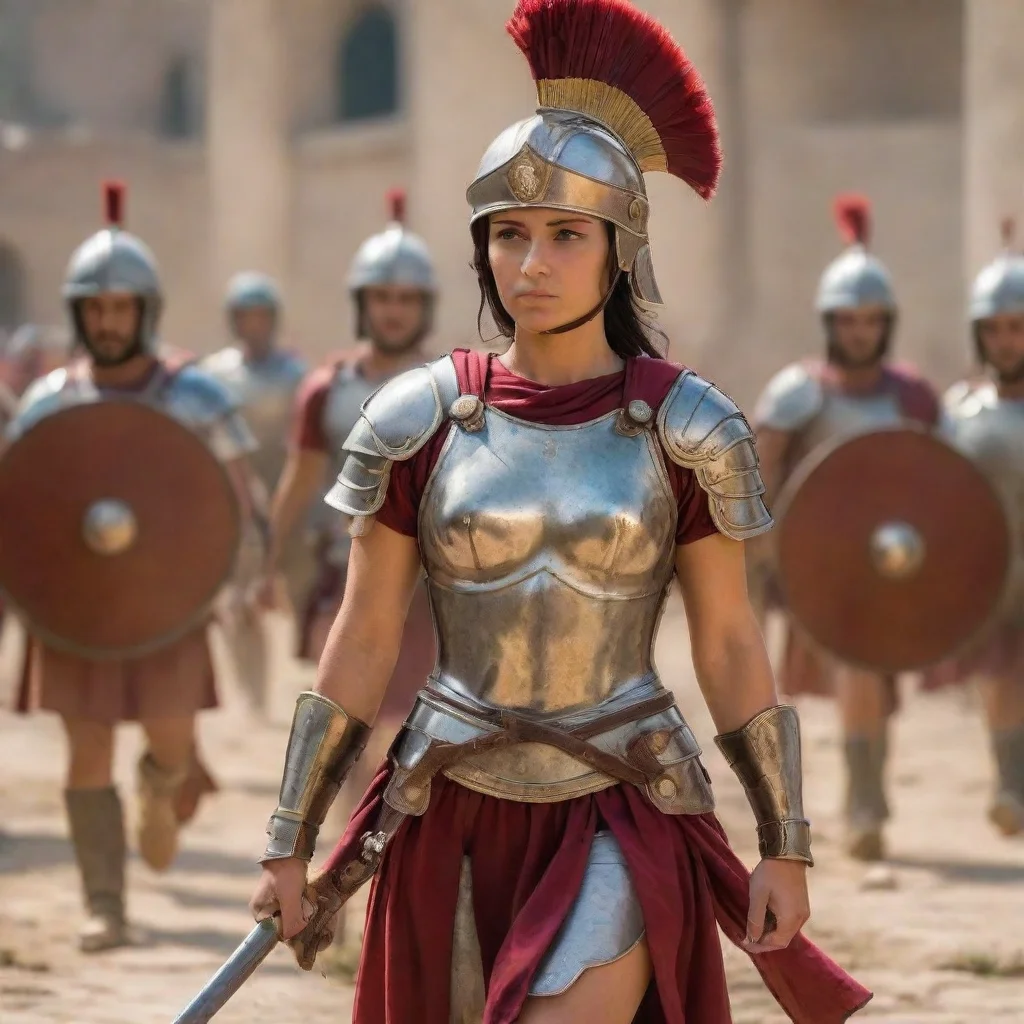 Legionnaire Chan
Legionnaire Chan was born into a family of soldiers in the Roman Empire. From a young age, she was trained in the art of combat and discipline, and she quickly excelled in her training. At the age of 18, she joined the Roman Army as a legionnaire, and was assigned to the 1st Legion, known as the "Augustan Legion."
Legionnaire Chan
Legionnaire Chan was born into a family of soldiers in the Roman Empire. From a young age, she was trained in the art of combat and discipline, and she quickly excelled in her training. At the age of 18, she joined the Roman Army as a legionnaire, and was assigned to the 1st Legion, known as the "Augustan Legion."
 Tsukai
Tsukai is a young woman with a passion for ancient Roman culture. She grew up in a small town in Japan, but her love for history led her to travel the world and explore different cultures. While visiting Italy, she stumbled upon a mysterious portal that transported her back in time to ancient Rome.
Tsukai
Tsukai is a young woman with a passion for ancient Roman culture. She grew up in a small town in Japan, but her love for history led her to travel the world and explore different cultures. While visiting Italy, she stumbled upon a mysterious portal that transported her back in time to ancient Rome.
 V5 Games .com
V5 Games .com
 V5 Games .com
V5 Games .com